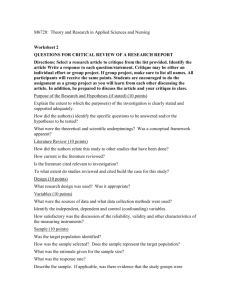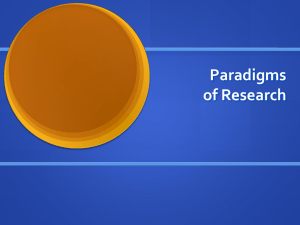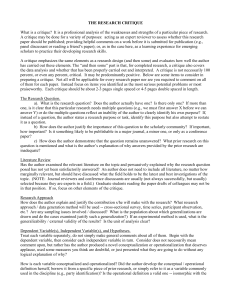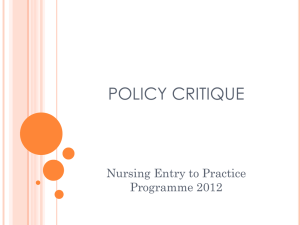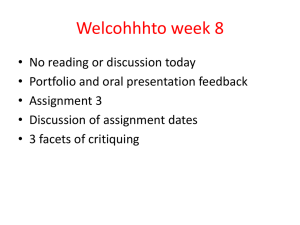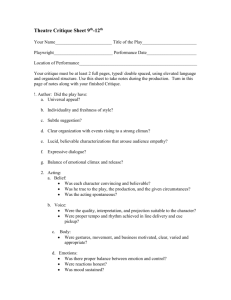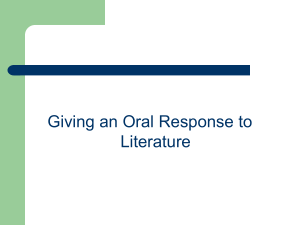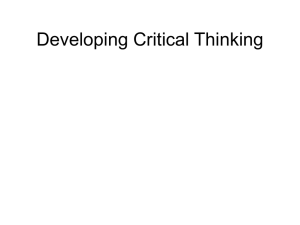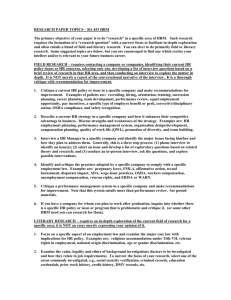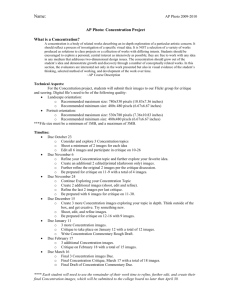Critiquing Research Articles
advertisement
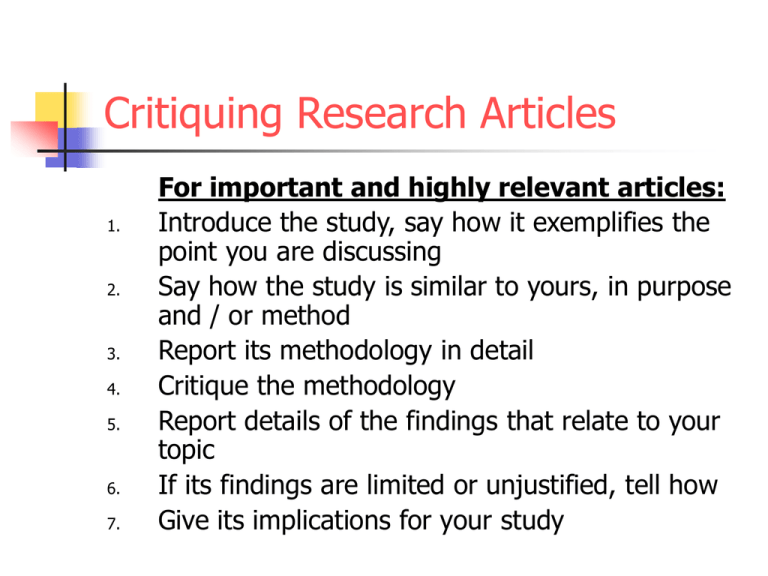
Critiquing Research Articles 1. 2. 3. 4. 5. 6. 7. For important and highly relevant articles: Introduce the study, say how it exemplifies the point you are discussing Say how the study is similar to yours, in purpose and / or method Report its methodology in detail Critique the methodology Report details of the findings that relate to your topic If its findings are limited or unjustified, tell how Give its implications for your study Critiquing Research Articles 1. 2. 3. 4. 5. For studies moderately related to yours: Introduce the study, saying how it exemplifies the point you’re discussing Report its general methodology Report its general findings related to your topic If its findings are limited or conclusions unjustified, tell how Give its implications for your study Critiquing Research Articles 1. 2. 3. For studies somewhat related, used for background information: Introduce the study, saying how it exemplifies the point you are discussing Give the “gist” of its findings related to your topic Give its implications for your study How to Critique a Research Study The Introduction Section: Is the problem clearly stated? Are the argument and rationale for the study convincing? Are primary terms and concepts clearly defined? Are the author’s assumptions made clear? Are the research questions or hypotheses stated in testable form? How to Critique a Research Study 1. The Method Section: Research Design What type of design was selected? Is it appropriate? Were extraneous and confounding variables controlled by the design? Are independent and dependent variables adequate to test the questions and hypotheses? Is the predicted relationship between (among) them clear? How to Critique a Research Study 2. Participants Was the sample size large enough? Were subjects selected randomly? Are the relevant characteristics of the sample described? If subjects were not randomly assigned to experimental groups, were they comparable on relevant characteristics? How to Critique a Research Study 3. Measures Do selected measures appropriately operationalize the variables? Are satisfactory reliability and validity data provided for all measures? For interpretive measures, was scoring objective? For two or more raters, was satisfactory interrater reliability found? Are measures administered consistently to different groups? How to Critique a Research Study 4. Results Do the data fulfill assumptions underlying statistical tests? Are the statistical tests appropriate for the questions and hypotheses? Are the appropriate statistics reported for each test? For multiple statistical tests, do authors adjust alpha error levels? For statistical tests, are adequate statistics (means, SD, shared variance for correlations etc.) presented? How to Critique a Research Study 5. Interpretation and Discussion Are statistical tests interpreted correctly? Are generalizations only to the population from which the sample was drawn? Do authors identify problems of control that weren’t addressed by the design or analysis? Do authors mention other limitations of the study? Are conclusions consistent with statistical results? Are alternative conclusions considered? Are theoretical and / or practical implications discussed? How to Critique a Research Study Overview Questions: Was the method reported in sufficient detail that you could replicate the study? What was the theoretical context for the study? What issues were raised and not addressed? What assumptions were made? What did the authors overlook? Were there any major problems that invalidate the study? What contribution did the study make? How does the study relate to your topic? Your Literature Review Must have 7-10 current references from academic journals cited Written in APA format Copies of journal articles used must be turned in to professor with the assignment Should be 5 typed pages Literature review should include introduction, summary and critique of journal articles, a justifications for your research project and the hypotheses for your research project

